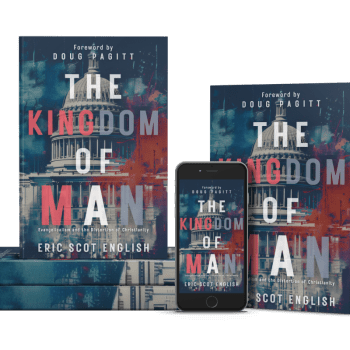
“Discipleship” is a buzzword in evangelical circles. I served on the Reformed Church in America’s coalition for discipleship for several years and I can tell you from experience that everyone in evangelical circles is looking for the magic potion for how they can properly train their people in the ways of the Lord. I spent years trying to convince people that discipleship is not simply about providing biblical education for people but training them in ALL aspects of the ways of Jesus. Jesus spent more time emphasizing relationships with people than he did anything else. In fact, he made it a point to deemphasize doctrine as seen through his many arguments with the religious leaders of his day. And still, discipleship is simply seen as an information transferring mechanism in most evangelical churches.
Last year, while I was considering the idea of discipleship in all of its various forms, an epiphany occurred. An all-encompassing form of discipleship already exists in the form of deconstruction and reconstruction. So, I wrote a book about it, which comes out at the end of this year (tentatively, November). The book is called UNenlightenment: A Theological Framework for Deconstructing and Reconstructing the Christian Faith. The idea was to create a resource that can guide individuals and groups through the deconstruction and reconstruction process by emphasizing what I call a “lived doctrine”. For example, approaches like apologetics are subsumed by the truth demonstrated through existential love. One argument subsumes all of the arguments we are taught to memorize. That is, “…they will know you are my disciples by your love”. This is a demonstrative apologetic that has no counter-argument because it is proven true by the life that Jesus lived.
UNenlightenment takes many traditional theological ideas, deconstructs, and then reconstructs them from a progressive perspective in hopes of providing a liberating framework for people to evaluate their own beliefs. You might be thinking: “Are you not just exchanging one set of presuppositions (evangelicalism) for another (progressivism)?” The answer is no. I define progressive Christianity not as a doctrinal movement, but as a milieu for experimentation. So, progressive Christianity is not as much doctrinal as it is environmental. It is a place made up of people from various denominations and worldviews who need a safe place to find their truth. Believe it or not, that means even some evangelicals are also progressive. This is because I believe that progressive Christianity is not as much antithetical to evangelicals as it is evangelicalism. Although evangelicalism has long abandoned its pursuit of truth, there are still many evangelicals who are searching.
One thing I wanted to stay away from was just creating a platform for expressing a liberal agenda. Instead, my goal was to create an honest critique of various theological perspectives, which meant in some cases reaffirming some traditional ideas (albeit, nuanced). My desire for this comes from the idea that not one worldview has it all correct, and that we must remain theologically, philosophically, and culturally humble when we go through this process. We must remain open to the idea that at least some of the things many of us were taught were true (albeit, very few). In the end, deconstruction should be about truth.
I don’t purport to have everything correct. The fact that I lay out my own perspective as a standard for reconstruction is neither adherence to absolutism, nor is it an indictment of my own arrogance but simply a logical persuasion to help the reader think differently. No doubt if I had written this 10 years in the future the reconstruction sections would contain different ideas because when deconstruction IS discipleship, it is a continual process of evaluation. Although my beliefs are not universal, logic and rationality are. Therefore, in the end, it would defeat the purpose of the book if people walked away believing all of the same ideas that I believe. Instead, I am hopeful that they walk away with perspective and tools for knowing how to better evaluate ideas they come in contact with.
I am hopeful that UNenlightenment will provide a language people can use for deconstruction and reconstruction. I am optimistic that we can create a way to do life together in an environment that cultivates more spiritual intimacy with our LORD and presents a shared logical coherence that makes our existential love attractive to the rest of the world.
Unfortunately, I think most evangelicals are not likely to get on board with deconstruction as the source of their congregation’s discipleship process. However, hopefully, enough of them will give deconstruction a try to see if it is a perspective that they can adopt. I will be actively marketing to both progressive and evangelical readers with the hope that those who are still open to truth will be transformed.
Until discipleship begins to teach people to think for themselves, it will always be an empty practice. It will always be reaching and coming up short of people’s expectations. People will continue to be dissatisfied with their spiritual life and beliefs until they have ways that they can teach and evaluate their own beliefs.
It is my ultimate hope that people will begin to understand that deconstruction IS discipleship.
Book release date and pre-order information coming soon!
You can view my UNenlightenment YouTube Channel HERE
You can view my UNenlightenment Podcast HERE
You can follow me on FaceBook HERE














